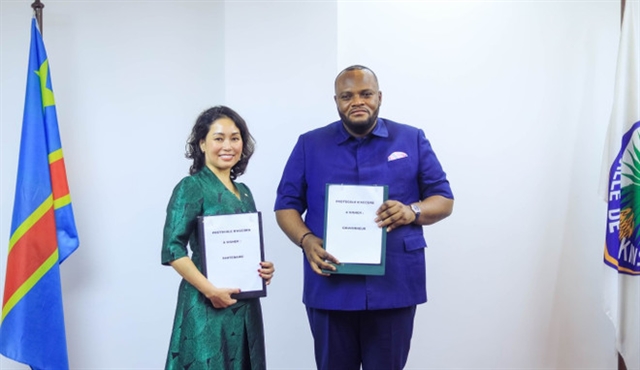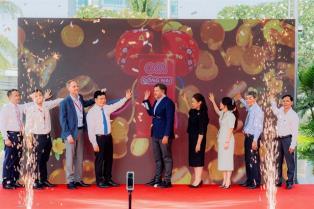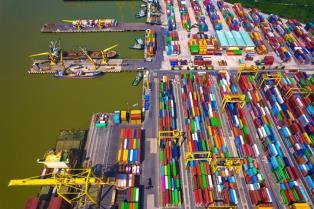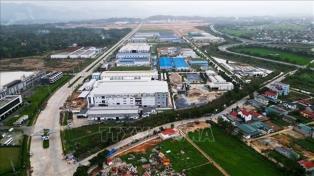The government of Kinshasa, capital of the DRC, and Việt Nam’s private conglomerate Vingroup have signed a memorandum of understanding (MoU) on cooperation in large-scale urban development and green mobility initiatives in the African country.

HÀ NỘI — The first major cooperation deal between a Vietnamese private enterprise and the Democratic Republic of Congo (DRC) is expected to open a new chapter in Việt Nam–Africa economic ties.
The government of Kinshasa, capital of the DRC, and Việt Nam’s private conglomerate Vingroup have signed a memorandum of understanding (MoU) on cooperation in large-scale urban development and green mobility initiatives in the African country.
Under the MoU, the two sides will jointly explore and develop a 6,300ha riverfront urban complex, with the local government committing to allocate land to Vingroup free of charge. The project aims to build a modern urban centre that improves living standards, reshapes the city’s landscape and becomes a new tourism and development symbol for Kinshasa.
Daniel Bumba Lubaki, Governor of Kinshasa, welcomed Vingroup’s presence, praising the group’s “remarkable achievements” in Việt Nam and abroad. He said he believed the partnership would mark a significant milestone, paving the way for a more modern, sustainable and vibrant urban future for the people of Kinshasa.
Beyond real estate, the two sides agreed to expand cooperation in green transport, including electric buses, electric taxis and charging infrastructure operated by VinFast – Vingroup’s electric vehicle arm and Green and Smart Mobility JSC (GSM), operator of Xanh SM, electric ride-hailing service. Officials view this as a core pillar of Kinshasa’s shift toward clean mobility.
The DRC holds 70 per cent of global cobalt reserves and key minerals such as copper, lithium, manganese and nickel – the backbone of renewable energy and electric-vehicle battery production. Yet it remains largely limited to primary extraction, capturing only about 3 per cent of global EV-battery value.
At the DRC–Africa Business Forum, co-chaired by President Félix-Antoine Tshisekedi and the African Development Bank, the DRC identified a strategic priority: enabling the country to move up the global value chain in batteries, EVs and renewable energy.
The DRC is home to more than 110 million people, and is the largest country in sub-Saharan Africa. It boasts enormous mineral reserves, significant hydropower potential, fertile farmland and the world’s second-largest tropical rainforest.
After years of reforms, the country has recorded notable economic gains. Between 2010 and 2015, it sustained average GDP growth of 7.7 per cent, effectively doubling its economic size in under five years. Despite global volatility, World Bank data shows the economy still expanded 6.5 per cent last year, with experts calling the DRC a “high-endurance African giant.”
Alongside this economic momentum, the DRC is seeking to diversify an economy long dependent on resources extraction. Non-extractive sectors are expected to become new growth drivers, with non-mining GDP projected to reach 5.3 per cent by 2027 as investment in construction and infrastructure accelerates.
Kinshasa, however, faces a severe housing shortage. With more than 17 million residents, it is Africa’s third-largest city and the 13th most populous in the world, adding around one million residents annually. The DRC is short nearly four million housing units, with Kinshasa accounting for over half; the city alone needs about 143,000 new homes each year. Rising demand from the middle class presents a significant opportunity for Vingroup. — VNS





